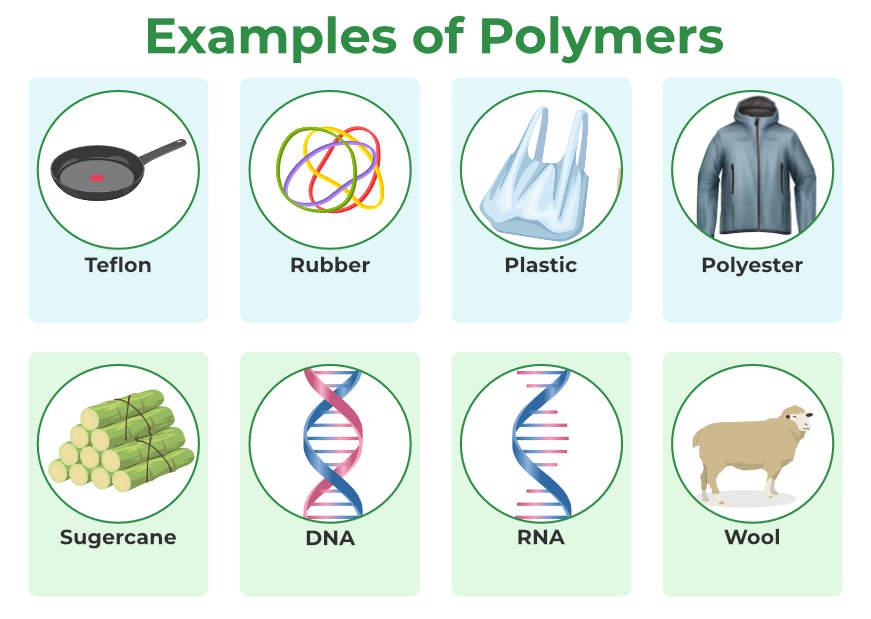Polymers in Healthcare: Improving Medical Devices and Treatments
Polymers in Healthcare: Improving Medical Devices and Treatments
Blog Article
Utilizing the Power of Polymers: Comprehending the Comprehensive Uses and Favorable Impacts
Polymers, with their varied chemical structures and buildings, have actually come to be crucial in many sectors, transforming the method we communicate with materials daily. From the product packaging that safeguards our food to the fibers that clothe us, the applications of polymers are large and differed. Yet past their ubiquitous visibility exists a deeper understanding of their favorable impacts, reaching far past mere convenience. As we discover the substantial uses of polymers and their role in shaping a much more lasting, reliable, and ingenious future, it becomes apparent that their capacity is as substantial as the molecules themselves.
Adaptability in Everyday Products
Polymers show exceptional flexibility in a wide range of day-to-day items, demonstrating their indispensable role in modern-day society. From the flexible plastic covering of smart devices to the sturdy fibers in apparel, polymers have changed the way we interact with products in our lives. One of one of the most common uses of polymers remains in packaging materials. Polyethylene, as an example, is extensively used in food packaging due to its lightweight, resilient, and moisture-resistant homes. In addition, polymers play an essential function in the automobile industry, where they are made use of in manufacturing light-weight parts that boost fuel efficiency.
In addition, polymers have located their method into the health care sector, with applications ranging from clinical devices to drug distribution systems. As an example, naturally degradable polymers are made use of in stitches and implants, reducing the threat of negative reactions in people (Polymers). In the building and construction sector, polymers are incorporated right into paints, adhesives, and insulation materials, enhancing sturdiness and power performance. Overall, the adaptability of polymers in everyday products underscores their significance in driving innovation and boosting lifestyle.
Sustainability in Material Innovations
With the recurring focus on environmental awareness and source performance, the emphasis changes towards sustainability in product technologies, reflecting an expanding dedication to liable production practices across numerous industries. Over the last few years, there has actually been a notable rise in the development of lasting materials, specifically within the realm of polymers. These innovative products are designed to reduce environmental impact throughout their whole lifecycle-- her explanation from sourcing resources to disposal or recycling.
One substantial element of sustainability in product technologies is the principle of biodegradability. Naturally degradable polymers have actually amassed interest for their capability to break down naturally into non-toxic results, reducing waste and pollution. Additionally, using recycled polymers acquired from post-consumer or post-industrial resources is acquiring grip as a method of advertising a round economy and minimizing dependence on virgin materials.

Enhancing Efficiency in Design
Enhancing performance in engineering needs a thorough integration of sophisticated innovations and exact methodologies to enhance functionality and performance in numerous industrial applications. Polymers play a critical role in this endeavor, using a wide variety of advantages that improve the performance of engineering products and components.
One secret aspect of improving my link efficiency in design is the capacity of polymers to boost sturdiness and toughness. By including polymers right into engineering designs, producers can develop light-weight yet durable structures that can withstand high levels of stress and anxiety and pressure. This particular is especially valuable in markets such as aerospace, automobile, and construction, where the need for solid yet lightweight products is paramount.
In addition, polymers can likewise enhance performance by giving thermal and chemical resistance, minimizing rubbing, and enhancing electric conductivity. These buildings make polymers suitable for a vast array of engineering applications, consisting of seals, bearings, coverings, and digital parts. Polymers. By taking advantage of the special residential properties of polymers, designers can maximize the performance of their designs and produce extra reliable and reliable products
Influence On Clinical Improvements
The integration of innovative polymer technologies has substantially contributed to advanced improvements in the medical area. Polymers have actually played an important duty in modern clinical innovations, varying from drug distribution systems to cells design. Among the key locations where polymers have made a considerable effect is in the development of naturally degradable stitches and implants. These polymers can be customized to degrade at a certain rate, enabling much better injury healing and lowering the demand for extra surgeries to eliminate implants.
Moreover, polymer-based products are increasingly being used in medical tools such as catheters, stents, and prosthetics because of their biocompatibility and flexibility. Polymer coverings on clinical tools can protect against infections and improve overall person results - Polymers. view it now In addition, improvements in nanomedicine have actually enabled the usage of polymer nanoparticles for targeted drug distribution, boosting the efficacy and minimizing adverse effects of different drugs
Role in Environmental Preservation
:max_bytes(150000):strip_icc()/three-dimensional-model-of-polyvinyl-chloride-165874889-5c425ea7c9e77c000188be6d.jpg)
Moreover, polymers are used in water therapy procedures, assisting in the purification and recycling of water sources. This assists in decreasing water contamination and making certain accessibility to clean water for both human consumption and ecological health and wellness. Polymers also contribute in agriculture via the growth of naturally degradable mulches and controlled-release fertilizers, advertising lasting farming methods.
Verdict
In verdict, polymers have actually proven to be a flexible and vital material in different industries, from everyday products to design and medical improvements. Understanding the comprehensive uses of polymers underscores their importance in driving technology and development in numerous areas.
Report this page